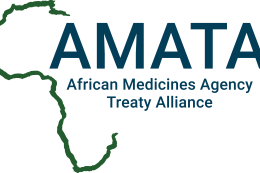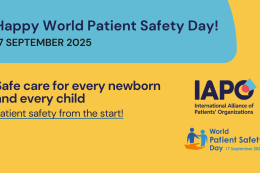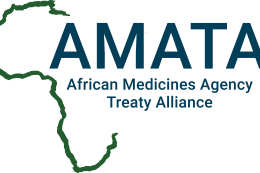Doctors as facilitators, not decision-makers

IAPO’s work is primarily aimed at achieving patient-centred healthcare around the world. However, it is not easy to determine exactly what patient-centredness means and which conditions should be met to best fulfil this principle.
As stated in our Declaration on Patient-Centred Healthcare, truly patient-centred healthcare refers to more than just access to affordable, high-quality treatments. Patients value other less tangible aspects too, such as the quality of information they are given and the extent to which they are actively involved in the decision-making process.
Open and effective patient-doctor communication
In order for this involvement to be concrete and authentic, open and effective patient-doctor communication is paramount. This is all the more true when patients consider taking part in research studies such as clinical trials. In this regard, patients are not simply those who need a cure. Most importantly, patients can be – and want to be – partners, co-decision makers, carriers of views and perspectives that need to be taken into account to arrive at higher quality decisions. For this to happen, doctors must work in close collaboration with their patients.
Most importantly, patients can be – and want to be – partners, co-decision makers, carriers of views and perspectives that need to be taken into account to arrive at higher quality decisions. For this to happen, doctors must work in close collaboration with their patients.
A relationship of trust
Some interesting aspects have emerged from a survey that has recently been conducted by IAPO amongst its member organizations as part of a broader research programme. Nearly 60 per cent of survey participants stated that they would prefer to be recruited in a clinical trial at the clinic they normally attend for a visit. Nearly half of the respondents would like to be recruited by their doctor. The reasons behind this clear trend were well expressed by our members. One member said: “My doctor knows the history of my illness and will be honest when advising me of what the benefits and negatives will be [of participating in a trial]”. Another member noted: “I trust my doctor. S/he knows what is acceptable for me”.
Drawing conclusions
In light of this, it is possible to draw some conclusions. From a patient perspective, patient-doctor interaction can represent a pillar of patient-centredness, provided two key conditions are met: knowledge and trust. The two aspects are closely connected and strengthen each other.
Patients trust their doctor because they think s/he knows what is best for them. However, trusting the doctor does not mean having him/her make decisions’ on patients’ behalf. Patients will only truly take ownership of their own healthcare if they are able to make relevant decisions by themselves. In this respect, the role of the doctor is that of a facilitator rather than a decision maker.



